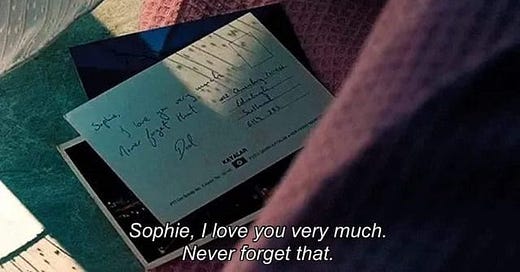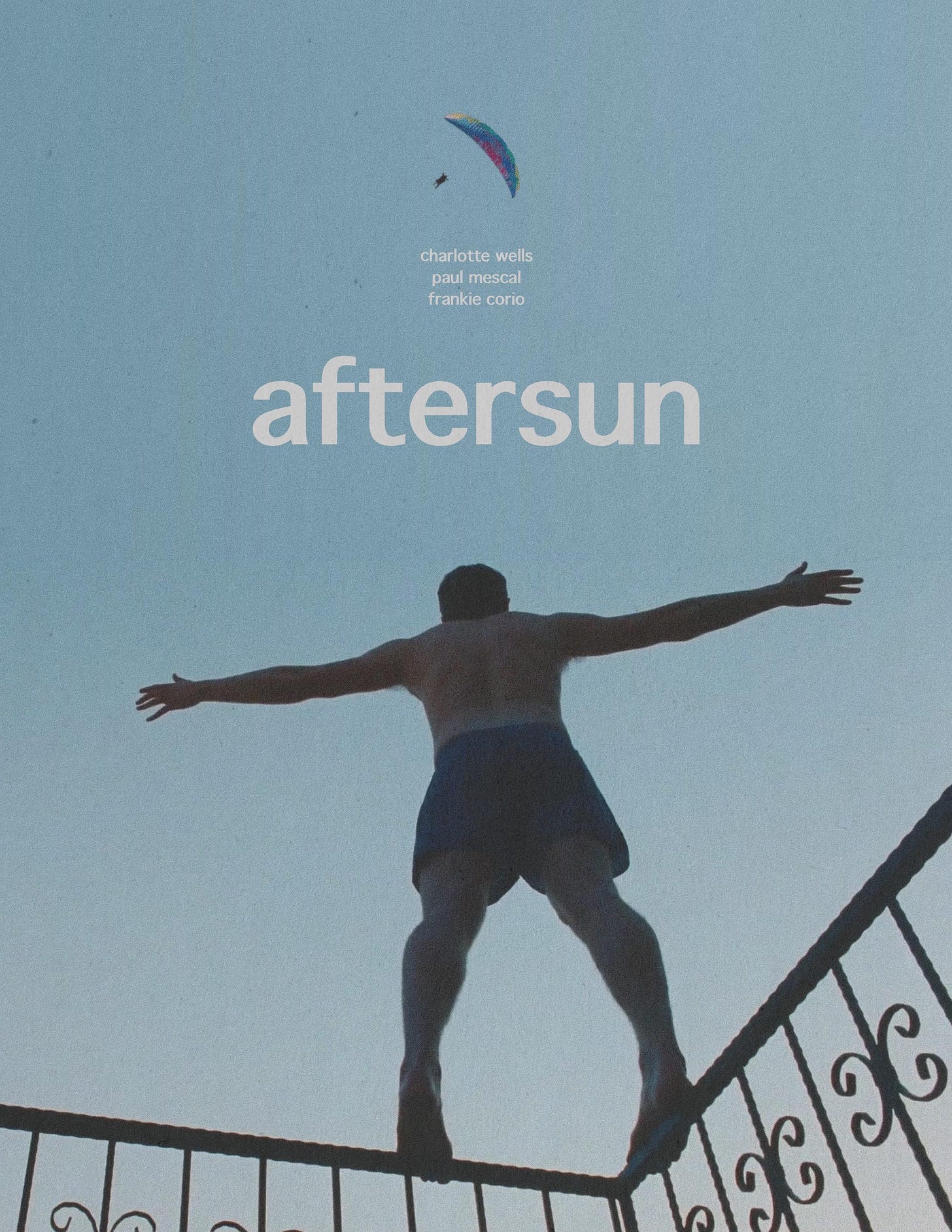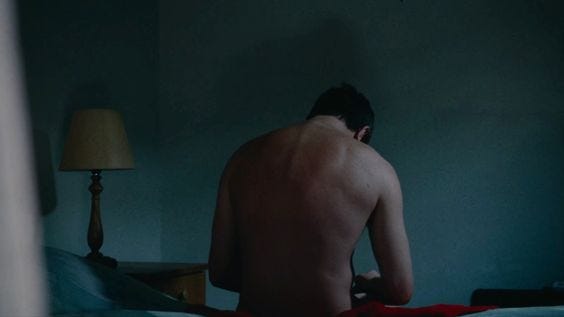this is our last dance
aftersun (2022, dir. charlotte wells): on hazy memories, retrospective grief, and parenthood
SOPHIE: I think it's nice that we share the same sky.
CALUM: What do you mean?
SOPHIE: Well, like... Sometimes at playtime, I look up at the sky, and if I can see the Sun then... I think that the fact that we can both see the Sun, so even though we're not actually in the same place and we're not actually together... we kind of are in a way, you know? Like we're both underneath the same sky, so... kind of together.
This movie exists solely through Sophie’s memories. Aftersun details a trip that she and her father, Calum, took together to Turkey when she was eleven years old. The film is told through distorted fragments pieced together haphazardly; the story unfolds in hazy vignettes riddled with blind spots of the last vacation she and her father took together.
The blind spots present themselves through a paradigm of naïveté that only a child can have. We are introduced to and continue to see Calum through young Sophie’s eyes, in the same dreamy and idealistic way we view our parents when we’re that age before we realize that they’re human as well.
It’s the way Calum’s expression is hidden from us when Sophie says, “I wish we could stay here forever” and we just see a Polaroid that immortalizes the moment. It’s the way the silhouette of something melancholy and devastating on the horizon is veiled by Sophie’s childlike innocence. It’s the way we never see Calum’s face when he cries because it is almost as if Sophie, even as an adult, cannot bear to imagine her dad’s face at that moment.





